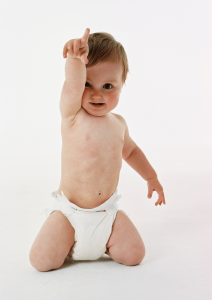
Recalling my pregnancy, I still remember trying to decide what to pack. I’m also glad I had a handy hospital bag checklist. It ensured I didn’t forget something important like my toothbrush.
One thing I quickly learnt was that I’m not only packing for myself. There was also my husband and our new baby.
You won’t need a large suitcase, but you will need a small bag, preferably one that is collapsible and also expands. So, here’s what I learned from packing my maternity bag, along with a checklist so you don’t forget the essentials.
Contents
When To Start Packing Your Maternity Bag
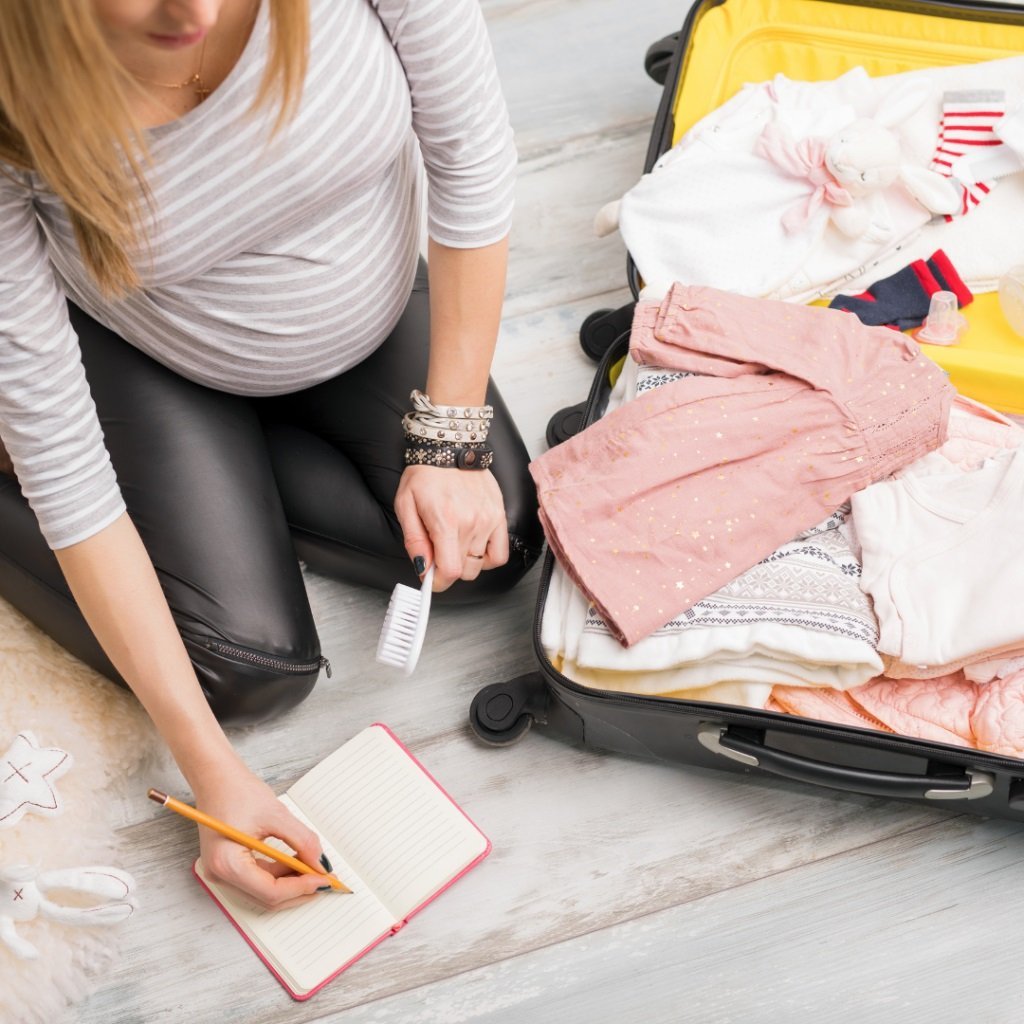
Your due date isn’t definite. You have a date when you’re supposed to go into labor, but babies don’t always pay attention to calendars. So it’s a good idea to have the basics in your bag around your 34th week, or by the latest 9 months.
When labor pains start, the last thing you’ll care about is whether you’ve packed your favorite pajamas or even a change of clothes. Your partner also won’t be a lot of help when your baby decides it’s time to make an entrance.
Starting to pack your bag early also helps ensure you don’t leave anything behind. You have time to recheck your packing, add items or leave some behind.
Hospital Bag Checklist For Mom
Most new mothers that have vaginal births have a short one or two-day hospital stay before going home. Your stay extends to three or four days with a cesarean birth [1]. Some women are fortunate and know what type of birth they’ll experience, while others are surprised when a c-section is needed.
Your labour bag checklist should include enough items to cover a two or three hospital stay. Don’t go over the top though, as your partner can always make a trip back to collect any extras should you need a very prolonged stay. Here’s what new moms want to pack.

- Insurance information and photo ID. Even though there will probably be plenty of time in between contractions to fill out hospital forms. Having the information close by makes it easier for your partner to take care of the paperwork.
- Some women create birth plans. If you have one, it should also be with your other documents. You may not be able to make your wishes known during and after labor.
- Your cell phone is one of the last items you pack. When you are ready to go to the hospital, don’t forget to bring the USB cable and power adapter. You have family and friends ready to congratulate you. It’s also a convenient way to share newborn pics of your baby.
- Pack at least three pairs of warm socks. Hospitals are notoriously chilly. You also want to choose socks with non-slip bottoms. You’ll be a little weak after labor and unsure of your balance.
- Some women prefer to snuggle in a comfy robe, while others love an oversized sweater. You don’t want to pack both. There’s limited space in your bag. However, you do want to pack one or the other. Comfort is key during labor and recovery.
- Even if you chose to have an epidural [2] over natural birth, your hair will still get in the way. Unless you’re sporting a super-short hairstyle, pack a soft headband or ponytail holder. Avoid hair clips. They don’t stay securely in your hair when you’re tossing and turning through labor pains.
- You will need a couple of maternity bras, along with nursing pads. Even new mothers that don’t nurse will still have some leakage. Do not pack bras with underwire. Your breasts will be tender and the wire painful.
- Bring a few pairs of adult underwear or disposable maternity pants, because bladder leakage is common after giving birth. Buying adult underwear may feel embarrassing but you’ll be glad you did. The hospital may give you mesh underwear. It’s functional and uncomfortable. After birth, you’ll have two concerns. First for your baby and also for own comfort. You’ll feel more comfortable in store-bought adult underwear.
- It would be sensible to pack some thick maternity pads as an extra liner for absorption in your underwear. Some post-birth bleeding and other leakage is to be expected.
- Loose, comfortable pajamas are essential. You don’t want to sleep in a thin, drafty hospital gown. Long nightgowns are great. It’s only one piece, easy to pack, and you don’t have to worry about elastic waistbands constricting your tender stomach.
- The clothes you pack for discharge should also be comfortable. Loose fabrics feel best and avoid pants with buttons or zippers. You don’t want to constrict your body, it’s still healing. Also, pack a pair of flat-soled shoes. It will be a few days before you’re ready to wear heels.
- Don’t forget your water bottle. You will get thirsty during labor. Nurses will give you ice chips to suck on, but it’s not the same as taking a satisfying drink.
Toiletry Checklist

There are essentials that every woman should pack. However, your curling iron and blow dryer are necessities you can leave at home. You really won’t feel like primping, all of your time is spent resting and getting acquainted with your baby. It’s also a good idea to keep your toiletries in a separate bag. This way you don’t have to worry about products leaking onto your clothes. To save space, look to get the small travel sized versions where possible.
- Lip balm is essential. Your lips will dry out. Hospitals have dry atmospheres that can cause lips to crack.
- Toothbrush and toothpaste. There’s no reason to forget about your oral health. You’ll also feel better after brushing your teeth.
- Hairbrush or comb. You’ll probably have plenty of visitors after the baby’s born. There’s no reason why your hair can’t be brushed. You also want to include shampoo and conditioner in your toiletry bag.
Other items to pack in your maternity bag include deodorant, face wash, and body lotion. Contact lens wearers will want to pack a storage case, along with saline solution.
Checklist For Baby
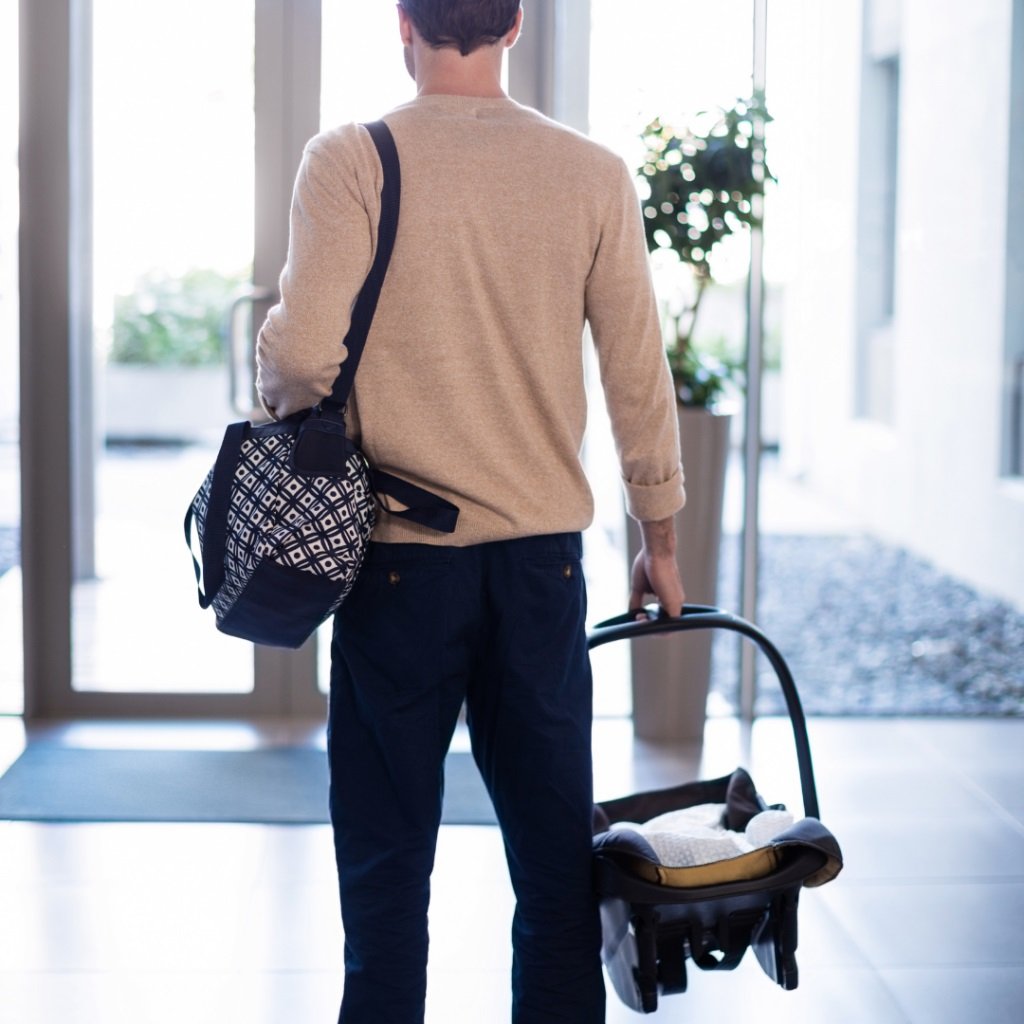
You only need to pack a few items for your newborn. Your hospital bag checklist must include:
- A car seat that meets U.S. safety standards [3]. You won’t be allowed to leave the hospital with your baby without a car seat. It is something the discharge nurse or physician will check for.
- A soft blanket to keep your baby covered.
- A few baby clothes in case you have to stay for longer. Consider a couple of vests, babygrow sleepsuits, and maybe a pair of mittens.
- A going home outfit including a warming pram suit if it’s likely to be a cold month.
- Most hospitals provide diapers during your stay and will send you home with a few extras. It’s always good to check with your hospital beforehand. If you are not sure , I’d definitely pack a small 10 pack and some wipes.
- Most hospitals also provide either pink or blue caps, though you can also bring your own cosy hat.
Hospital Bag Checklist For Your Partner

Your partner only needs a small bag, mainly for entertainment. I quickly learned that it’s best when your stuff is separate from your partner’s items. It’s hard to concentrate on timing contractors when your husband is rifling through your stuff.
Even though your partner can pack their own bag, it relieved some of my pre-birth stress when I did it myself. It was something I could control, unlike knowing exactly when I would finally go into labor!
- Even though you can’t pack the cell phone and charger until you leave for the hospital, have a good idea of where the components are stored. This way you won’t spend precious minutes looking for a charger when your contractions start.
- Most partners stay through the birth and overnight. They’ll need a change of clothes. Keep it simple. Your husband will be too busy being a new father to remember how to knot a tie.
- You want to keep your partner entertained. It usually takes more than a couple of hours to give birth. Most new mothers are in labor for 6 1/2 hours [4] and longer. So don’t rely on any long conversations to occupy your time. You’ll be too busy concentrating on the next wave of contractions. Pack a magazine and ensure there are plenty of entertainment options on the phone or tablet. Though most of your time will be most likely be taken up providing much needed support. Consider a portable speaker so you can listen to some soothing sounds or some of your best-loved music.
- Snacks are essential. Pack a few of your partner’s favorites. It also doesn’t hurt to include a few of yours. Some soon-to-be mothers are allowed to snack up to a certain point, while others aren’t allowed to eat until after the baby is born. Either way, you are going to be hungry. The hospital will send you a light meal, but it isn’t enough to satisfy you. Nuts, dried fruit and energy bars will keep you going for longer.
- Any daily medications either of you takes is best packed in your partner’s bag. It’s easier to find. Your partner has less stuff. It also gives you a chance to relax and rest, instead of spending time hunting for medications.
Your Partner’s Toiletry Checklist
If you’ll both be staying overnight, remember to pack your partner’s toothbrush and toothpaste. Deodorant, shampoo, conditioner, and body wash are other items to include in the toiletry bag. It’s a good idea to keep your partner’s stuff separate from yours. It makes things a little easier when you’re primarily focusing on your new baby and not whose shampoo you’re using.
What To Use For A Maternity Bag
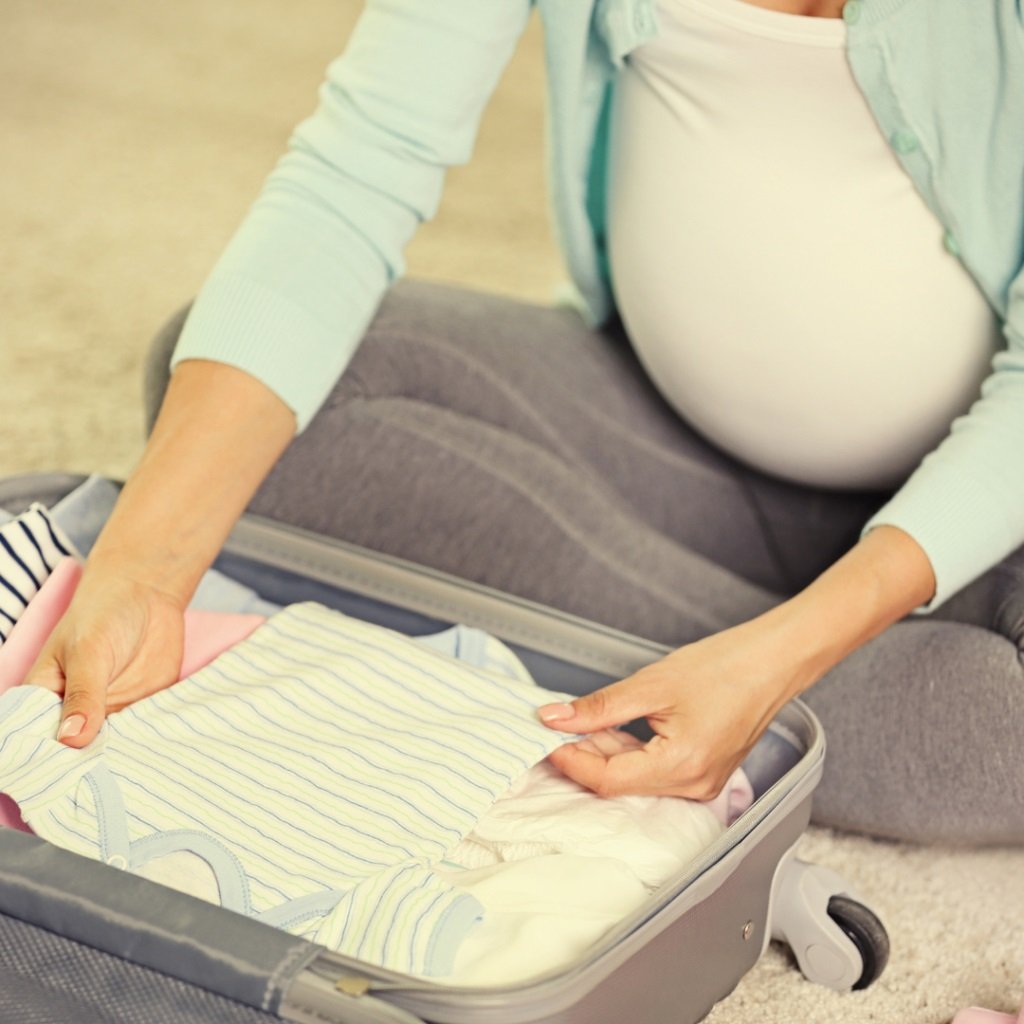
You can use anything from a small suitcase to a duffle bag or backpack. Soft will better if space may be an issue in your room. A friend gave me a great tip; it’s much easier if your bag has wheels! Getting to and from hospital, and moving around when you’re there will be a breeze.
Make sure each bag comes with pockets. It’s important for organization. You don’t want everything jumbled together inside the bag. It’s embarrassing to pull out adult underwear when you want a pair of socks. The small pockets were the perfect size to hold my daughter’s going home outfit.
If your bag doesn’t have dividers, you probably want to fold another light bag inside in which you can separate all of your dirty or soiled clothes.
What About Photographs?
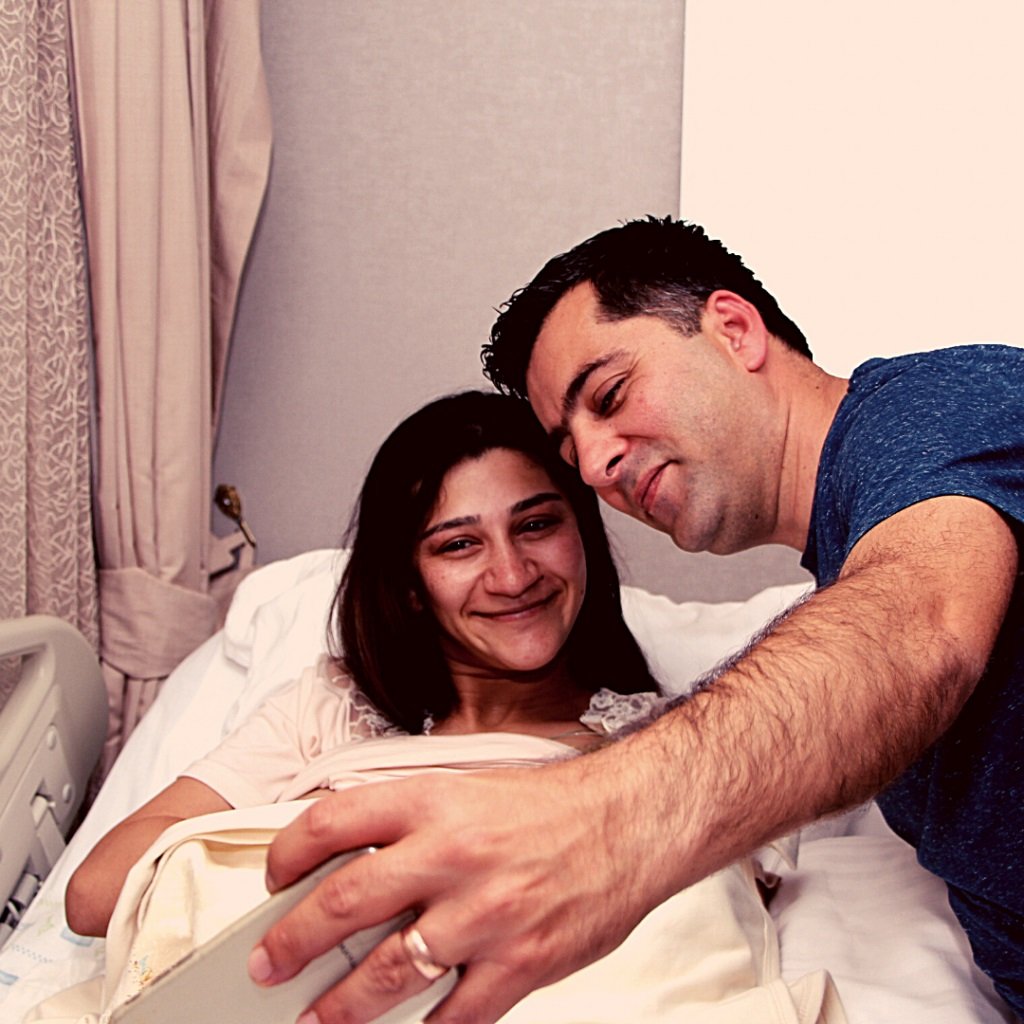
It’s hard to find a hospital bag checklist for new moms that doesn’t include a camera. First photos are special, and you don’t want to miss a moment of your baby’s first hours. I didn’t pack a camera. I also didn’t send my husband to the gift shop to buy a disposable one.
Unless you are really into your photography, I’d leave the SLR at home. Cell phones come with amazing cameras, along with tablets. Technology has advanced to the point where it’s hard to tell if a photo was taken by a phone or handheld camera. It also makes it easier to post proud newborn pics to social media. You will want to share the photos with everyone you know.
Summary
When you’re in the ninth month, it’s time to start packing your maternity bag. It helps to have a hospital bag checklist. You don’t want to leave something important behind. It’s also a good idea to pack a separate bag for your partner.
- Before your ninth month, create a hospital bag checklist for you, baby and your partner.
- By 34 weeks, start packing your maternity bag. Make sure your partner is getting theirs prepared too if you are not doing it.
- Keep the bags close by so you can easily grab them on your way to the hospital.
Now you’ve got your bag sorted, have a read of our unique baby names article to help you choose a name that will make your baby stand out!







